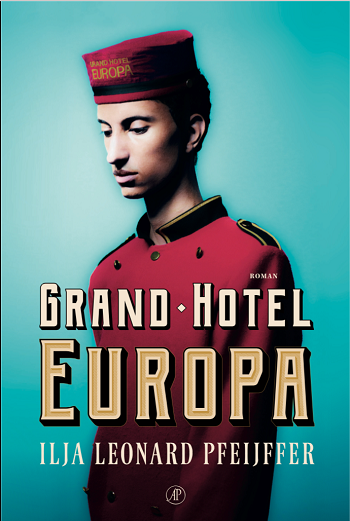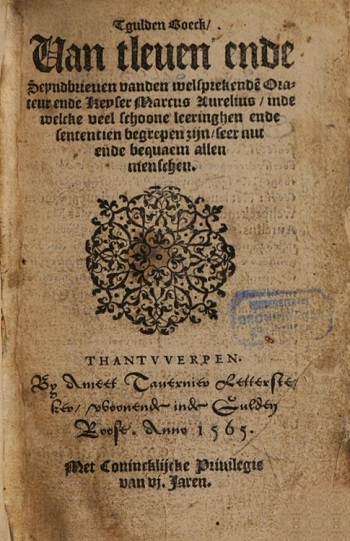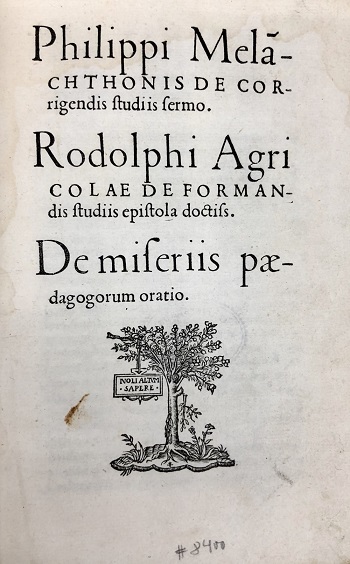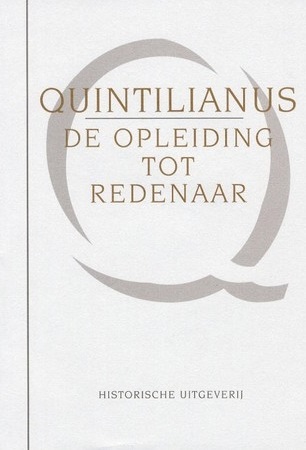Humanity Lab

We are living in exceptional times. Humanity is experiencing a crisis. On a global scale, we are fighting in a war once again—this time, not against each other but against a virus. The battle is not yet won but the worst part seems to be over. Societal life is starting up once again. The UG is still closed for the most part but, as a first step, its laboratories have reopened. The Special Collections research room at the UB belongs to this category too. Is that strange? Not really, because the Special Collections department is the laboratory where you can research humanity.
Research lies at the essence of the word historia
In Dutch, historie is understood to mean history or storytelling. That is also what the word historia depicts: research into what has happened in the past and has become history. This in turn results in storytelling. Not only to connect facts to facts but also to connect people to facts—to fascinate people while you lay out the connections. ‘If anything, this is what culture is: a collective memory of all of the stories that have defined who we are and what it means for us to be human. Stories give meaning to life and borrow this meaning from other stories.’ (Ilja Pfeijffer, translated).
History is fascinating
If you practise it well, that is. You tell stories that fascinate people, capture their attention and grip it tightly. Another result is that you rediscover information and share it with others. By definition, this is information about the past—otherwise, we’d call it journalism. The age-old follow-up question is: Cui bono? Who benefits from this? It’s all fun and games but what’s the use of stories about the past?
Does history also have a practical use?
This depends on who you ask. Some people don’t think so—the most recent case being a historian who published an opinion piece in the newspaper. This piece was ironic, as his own words proved him wrong. He opposed an earlier pamphlet produced by a number of his peers, who had pleaded for the valuing of historians during this time of crisis. Their message was that it is precisely at moments like this that knowledge of the past can be helpful. But this historian criticized their message. In his opinion, historians are not therapists.

Enter emperor Marcus Aurelius
He would have advised our historian against issuing such a public response. This man, who ruled over almost the entirety of Europe between 161 and 180 AD, wrote pieces of advice to himself. These were not intended for publication but have since been well preserved. So, we can glimpse a piece of his mind! He wrote down: ‘Good will is invincible.’ What he meant by this: If you want to correct someone, don’t do so in the presence of others because that works counterproductively. Who wants to be criticized in front of others? This leads to feelings of shame or even humiliation, which in turn mostly lead to anger and revenge. It is a human response that transcends time. Research into the recent or ancient past has demonstrated it. Knowledge of this provides insight into people’s behaviour. And we can profit from this knowledge right now, because despite our actual circumstances changing constantly, human behaviour remains essentially the same. Marcus Aurelius is thus relevant for us even today, and tomorrow. And he’s just one example.

History is therefore a cornerstone of humanism
By humanism, I mean the philosophy of thinkers such as Desiderius Erasmus and his hero from Groningen, Rodolphus Agricola. The term is derived from the Latin humanitas, meaning humankind as well as humanity and civilization – two fundamental characteristics of humankind. According to humanists, human beings are not born but formed, in terms of language as well as behaviour. A first requirement of civilization is that people can accurately and compellingly put what they are thinking into words. This demands language education. A second requirement is that people can live well together with others. This demands behavioural education. This approach determined the education provided in Europe for centuries.
For behavioural education, history is crucial
Behaviour can be taught both theoretically and practically. For the first, we need ethics, and for the second, historiography. The field of history does not revolve around years and dates but around human behaviour. Historians explain how people behaved in the past, and why. People can learn from this and apply it to their own circumstances. Humanists even deemed this a requirement, as a part of civilization. In this way, human beings are formed. By having people study the behaviour of those who lived before them, you condition them to learn humane practices. As Ovid’s heroine Sappho put it: Abeunt studia in mores, or ‘studies lead to practices’. This approach also applies well to human nature, as we are creatures of habit. We act on habit as often as possible because conscious reflection takes a lot of energy. When we act on habit, we are using tried and tested answers to problems that were solved in the past. A humanist take on history provides such practised answers.

The Greeks and Romans knew this already
Humanists gained their inspiration from Antiquity, when writers and thinkers had the same perspective on humans and civilization. Just take a look at the plea through which Cicero defended the poet Archias in the year 62 BC, or Quintilian’s impressive book about studying to become an orator. These sorts of books, which document human civilization, can be found in the thousands in the Special Collections department of the University of Groningen Library. Here, humanity is laid out like a patient etherised upon a table. Here, you can research humanity like a virus under a microscope. Here, you’ll find yourself in a humanity lab where you can discover answers to questions that we are currently facing. Just look, and you will find. No wonder the Special Collections department is one of the first to be reopened—precisely in this time of a crisis of humanity, in which our behaviour is nothing new.

